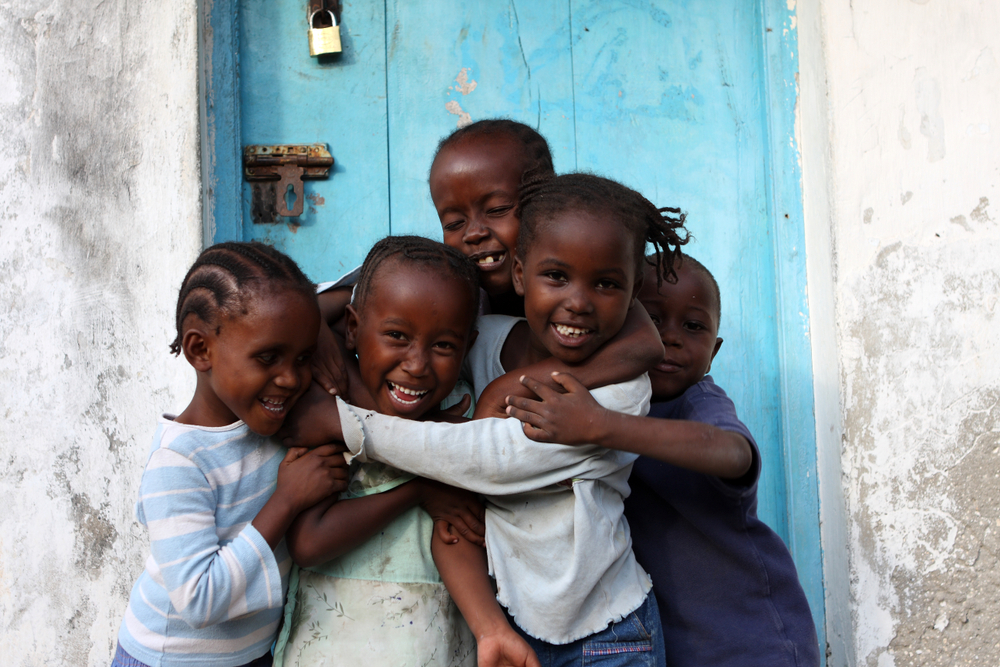The DVF Framework—which stands for Desirability, Viability, and Feasibility—is a strategic model that helps organisations assess and refine their initiatives as they scale. It can help organisations reflect on how well innovations align with user needs (desirability), are financially and operationally sustainable (viability), and can be realistically implemented with available resources (feasibility). By balancing these three elements, education organisations can scale effectively while maintaining quality, impact, and long-term success. GSF has integrated the DVF framework into its Impact at Scale Labs – Early Years in Kenya programme, which helps education organisations scale their innovations effectively.
This case study focuses on how Labs participant Lake Region Development Programme (LRDP) improved the feasibility of their innovation by developing strong partnerships with government stakeholders and community members.
Introducing Lake Region Development Programme’s programme
Lake Region Development Programme (LRDP), operating in Homa Bay, Migori, and Kisii Counties in Kenya, works with the government and other partners to improve education, health, and economic outcomes. They take a cross-sectoral approach to breaking the cycle of poverty in their community. One of LRDP’s goals is to enhance early childhood development (ECD) in Kenya's South Nyanza region. To achieve this, LRDP implements a comprehensive caregiver training programme for both home-based and centre-based childcare providers, encompassing four key components:
- Responsive and protective caregiving: Community-selected facilitators trained by LRDP lead group sessions on play, attachment, health, nutrition, communication, and child safety, ensuring cultural relevance and local engagement.
- Livelihood support: The organisation equips caregivers with entrepreneurial and financial literacy skills to enhance their childcare businesses and increase their income. Additionally, caregivers receive starter packs tailored to their needs to strengthen service delivery alongside the programme’s core training.
- Government collaboration: LRDP works closely with government frontline workers, training them on ECD concepts, reflective supervision, and caregiver wellbeing. These trained workers support LRDP to mobilise programme participants, mentor community-level facilitators, oversee training sessions, and provide LRDP with feedback through reflective supervision. Additionally, LRDP engages stakeholders such as the education department, which trains ECD teachers, and the health department, which conducts community health outreach activities.
- Teacher training: LRDP trains ECD teachers on child protection issues, enabling them to educate parents on child protection and improve access to related services. With their enhanced skills, these teachers can identify and address child protection concerns among the children in their care.

Scaling ECD: LRDP’s collaborative approach
A key part of determining the feasibility of scaling an innovation is understanding the strength of support for it from outside of the organisation. Scale partnerships with governments and communities can increase the level of support by providing infrastructure and access to deliver on the innovation’s promise. LRDP stands out as a model for feasible, scalable early childhood development (ECD) interventions. Central to LRDP’s success is its strong focus on co-creating programmes with local governments and communities to ensure long-term sustainability and impact. By actively engaging with county-level officials, community leaders, and caregivers, LRDP builds programmes based on the needs and priorities identified by stakeholders, ensuring alignment with existing structures and policies.
Engagement with government
- Policy guidelines and regulatory framework: The government provides policy guidelines that help LRDP align its activities with national and county development plans, creating a clear roadmap for achieving programme goals. LRDP also collaborates with the County Government’s Early Years Education Department to facilitate the issuance of permits for caregivers running daycare and home-based care centres. The Children’s Department is also engaged to sensitise and support the caregivers.
- Sustainability: By involving government stakeholders in activities such as caregiver training, community sensitisation, and service delivery, LRDP progressively transfers ownership of the program to the government. This ensures that even without LRDP, trained and knowledgeable frontline workers can continue providing these services.
- Technical support: Government officers provide valuable technical advice to guide LRDP’s activities, particularly during community needs assessments. They also offer other technical support, advice and linkages. Their recommendations, based on current statistics, innovations, and government priorities, ensure alignment with County Integrated Development Plans and Annual Development Plans, enabling LRDP to address community challenges effectively.
LRDP found that strong collaboration with the government is crucial to the programme’s success. Early engagement with government stakeholders fosters smoother alignment with national and county goals, while formal agreements like Memorandums of Understanding (MoUs) enable resource sharing and efficient use of staff and funding. It also leads to operational efficiency, since government workers with similar roles support programme implementation, leading to reduction in costs and avoiding the duplication of efforts. Strong relationships with government officials also facilitate easier community access and greater trust in target areas.
Engagement with community
LRDP initially focused on supporting primary caregivers of children under 5 years old. With support from the Labs, the programme expanded to include caregivers providing childcare for children aged 0 to 3 years in daycare and home-based settings. This expanded approach aimed to improve the quality of childcare services while economically empowering women caregivers. By enabling primary caregivers to pursue income-generating activities and helping childcare providers grow their businesses, this strategy broadens the programme’s reach to benefit more children.
- Community-led needs assessments and feedback mechanisms: LRDP begins each intervention with community-based needs assessments, allowing local residents to identify pressing issues and shape the programme’s focus. These participatory assessments inform intervention planning and are followed by community feedback meetings to evaluate progress, identify areas for improvement, and adjust activities based on emerging needs. This bottom-up approach ensures interventions are relevant, context-specific, and responsive to community priorities.
- Mentor and facilitator development through local partnerships: Working closely with county education offices, children’s departments, and social services, LRDP identifies and trains local mentors and facilitators, including Early Childhood Development (ECD) supervisors and community health promoters. Government officers at sub-county levels play a crucial role in selecting individuals best suited for these roles. These trained mentors serve as trusted community resources, reporting to both LRDP and local government, which strengthens programme accountability and sustainability within the community.
- Community awareness through local radio programmes: LRDP collaborates with local radio stations to raise awareness on key issues such as child protection, health, and education. Staff members often appear on these programs alongside government officials, creating a platform to discuss community challenges, share programme updates, and provide practical advice to families. This approach not only extends LRDP’s reach to a broader audience but also reinforces the organisation’s credibility through visible partnerships with government representatives.
LRDP’s collaborative approach with government and community stakeholders is central to its feasibility for scaling. By aligning with existing policies, leveraging government technical support, and including local authorities in program ownership, LRDP improves their long-term sustainability. These partnerships reduce costs, enhance operational efficiency, and integrate the program into existing frameworks, making it more viable for scale.
About
The Impact at Scale Labs by the Global Schools Forum (GSF) supports organisations with promising education solutions to test, adapt, and scale their impact. The Labs provide flexible funding, evidence-based iterative learning approaches, stakeholder engagement opportunities, and scaling support through the GSF network
Laterite, a data, research and analytics firm specialisng in social impact, was engaged by GSF to provide monitoring and evaluation (M&E) technical support to Lab grantees. Laterite’s expertise includes quantitative and qualitative data collection, research and evaluation design, and capacity building throughout the M&E cycle.
Laterite supported the Lake Region Development Program (LRDP) in designing and implementing a study on their caregiver training program. This included identifying testing areas, developing methodologies, creating tools and sampling frameworks, monitoring and cleaning data, conducting analyses, and interpreting findings to refine the solution for greater impact.

